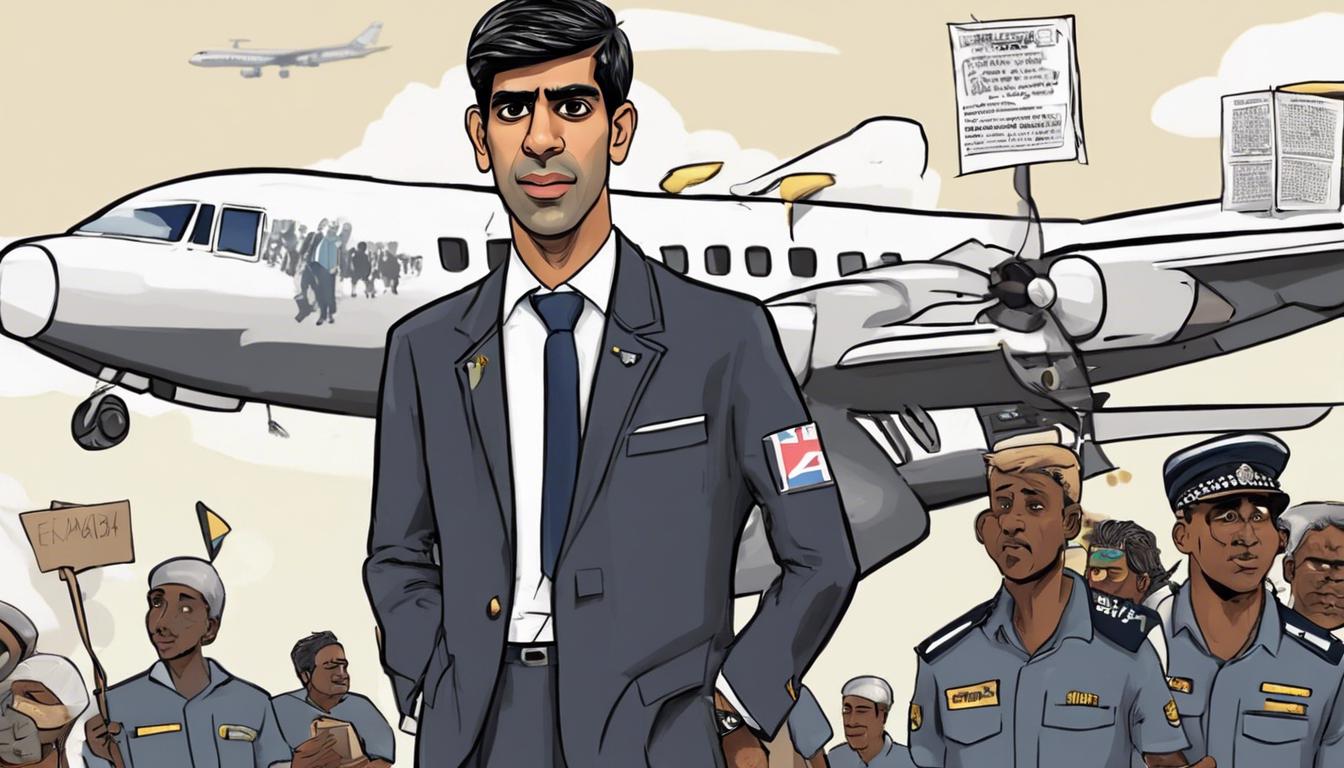The UK’s initiative, driven by Chancellor Rishi Sunak, to deport asylum seekers to Rwanda is under scrutiny as it encounters legal obstacles and widespread criticism over human rights concerns.
The UK government, spearheaded by Chancellor Rishi Sunak, is preparing to launch deportation flights to Rwanda within weeks, a move announced amidst ongoing discussions about controlling illegal migration. The deportation plan, designed to deter asylum seekers from crossing the English Channel in small boats, is slated to take off despite not yet securing an airline after Rwanda’s national carrier declined participation over reputational concerns.
Sunak has underscored the importance of immigration control to his administration and threatened to override UK commitments to the European Court of Human Rights (ECHR) if it interferes with the deportation scheme. The contentious Safety of Rwanda (Asylum and Immigration) Bill, which is up for debate, includes provisions to disregard foreign court rulings. However, this stance has faced criticism from some MPs, citing potential conflicts with the Good Friday Agreement and ECHR incorporation into Northern Irish law.
Simultaneously, the UK government is in talks with AirTanker, a charter airline known for its Ministry of Defence and RAF contracts, to conduct the deportation flights. This comes after other UK-based options, including RwandAir, declined involvement. As legal and political challenges mount, with groups like Freedom from Torture urging AirTanker to withdraw and Labour proposing alternative solutions, the government remains determined to proceed.
Charities and legal advocates for asylum seekers, including Care4Calais, are preparing to challenge the legislation that asserts Rwanda as a safe destination for deportees. With legal proceedings anticipated, the plan continues to face significant resistance focusing on human rights concerns.
As the UK government pushes forward with this initiative, Home Office statistics highlight a rising number of Channel crossings, intensifying the debate over the effectiveness and humaneness of the deportation strategy. The situation remains dynamic, with political, legal, and ethical implications at the forefront of discussions.













